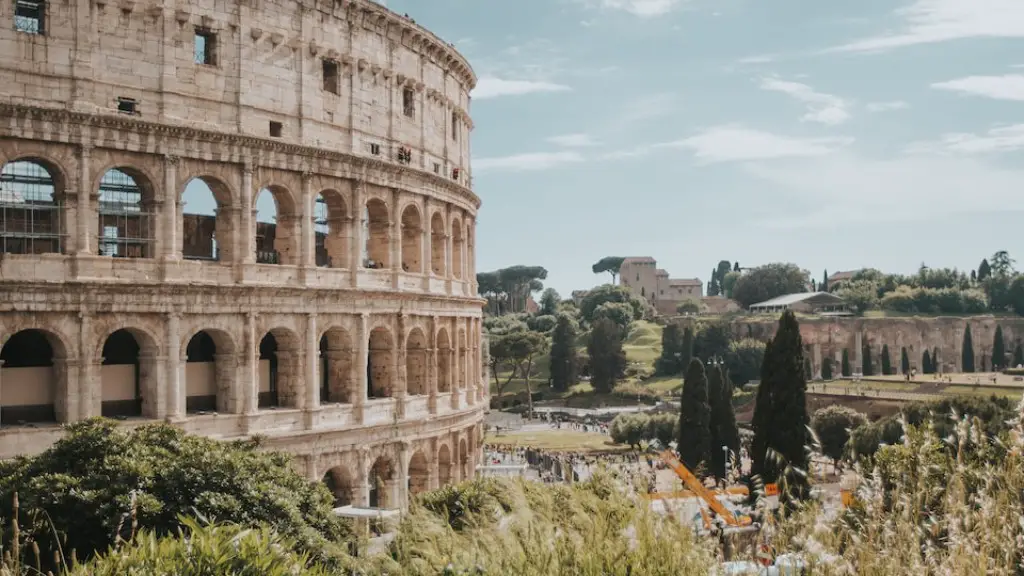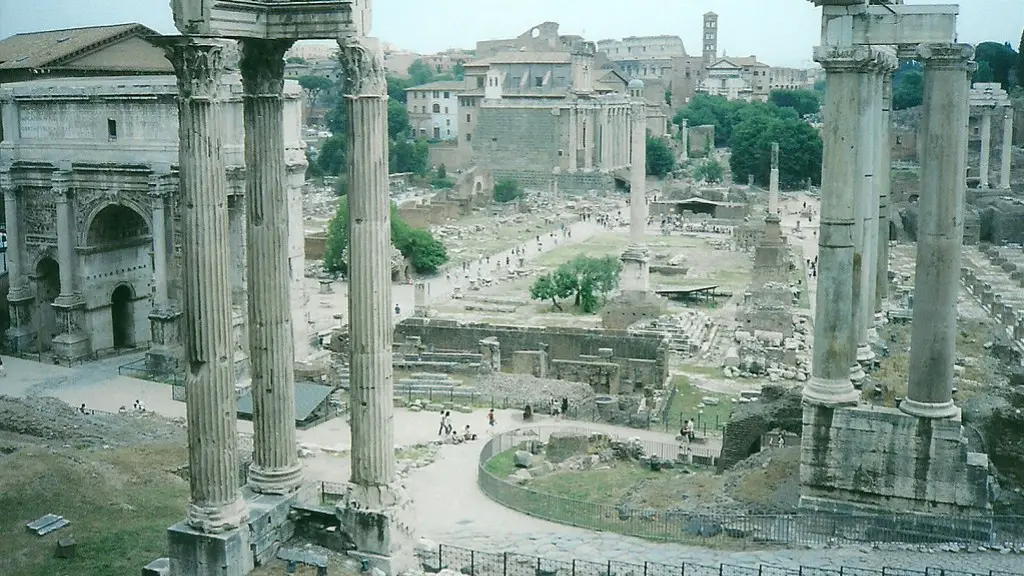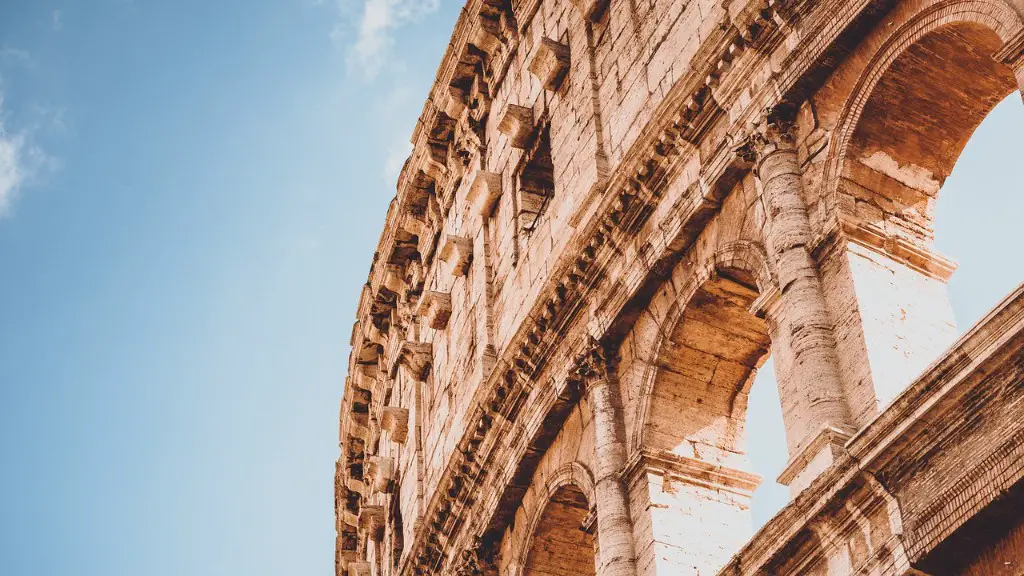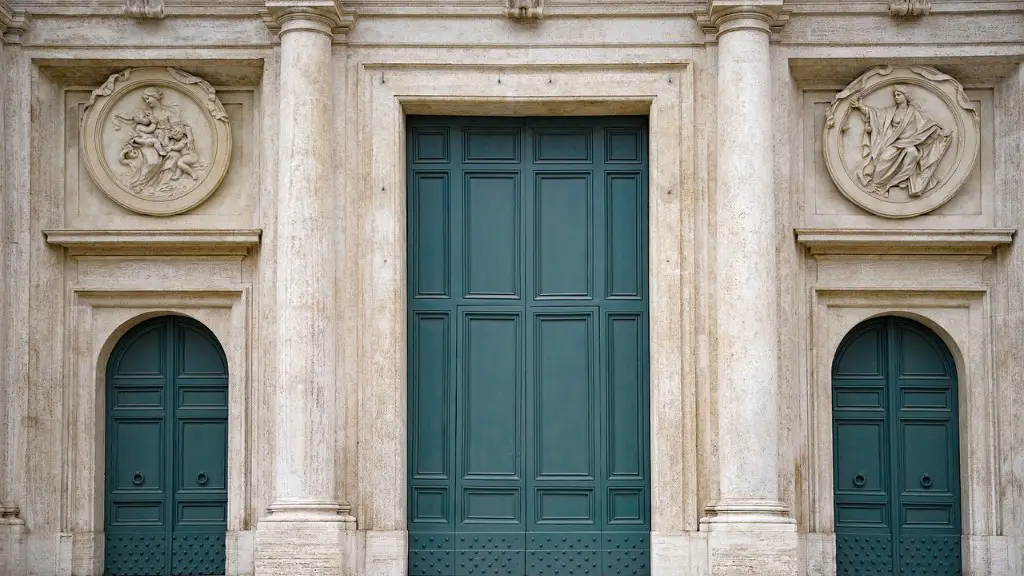Origin of Legal Verdicts in Ancient Rome
The legal system in place in Ancient Rome was significantly different from the judiciary systems of today. In Rome, a legal verdict was traditionally passed down not by a judge or jury, but by magistrates or governing officials, a practice dating back to the 5th century BC. These officials were usually taken from the highest levels of Roman society and would use their influence and authority to reach a verdict.
Originally, the magistrate’s role was simply to interpret and affirm existing Roman laws, which were largely based on the opinions of past rulers and the age-old traditions of the Roman people. Over time, however, these magistrates gradually assumed a more active role in presiding over criminal trials. This shift in legal practice came partly as a result of the need for a more equitable system of justice, as well as in response to the changing needs of a growing Roman empire.
Throughout the Republic era, the magistrates presided over legal disputes and decided cases. Although their authority as judges was only formalised during the imperial period, the magistrates’ decisions had already become virtually binding by then. This gave Roman legal verdicts the authority of law, making them binding on all citizens.
The Romans also valued the concept of precedent, the idea that the decisions and judgments of previous cases should guide future verdicts. This helped to ensure consistency in verdicts and to deter individuals from taking the law into their own hands. The Romans also extended this idea of precedent to other areas of life, such as religious rites and customs.
Another important part of the Roman legal system was the idea of appeals. In ancient Rome, citizens could appeal the decisions of a magistrate if they felt that the verdict was unfair. Appeaing was sometimes an option for those who were impoverished or in visible minority groups. Despite the risk of appeals, the magistrate’s authority was still largely unquestioned in most cases.
In conclusion, it is clear that the magistrates of Ancient Rome were the ones who passed down legal verdicts in court. This practice of relying on magistrates to pass down legal verdicts was a defining feature of the Roman legal system, one that was established early in the Republic era and continued until the fall of the Roman Empire.
Evolution of Legal Verdicts in Ancient Rome
The legal systems of ancient Rome evolved over the centuries, as the Roman Empire grew in size and influence. During the Republican period, the standard of justice was high and Roman laws were observed rigorously. As the Empire expanded, however, the demand for a more equitable legal system rose. This led to the gradual establishment of a uniform legal framework and an increasingly influential judiciary system.
As Roman society grew more complex and sophisticated, the judiciary system also developed. Initially, legal cases were tried before a panel of magistrates. Over time, this system was refined with the introduction of a jury system. In addition, the magistrates’ decisions began to be enforced more effectively, as the authority of Roman law grew.
During the imperial period, the role of the magistrate expanded to include presiding over criminal trials. Magistrates presided over legal proceedings, heard arguments, and passed down judgment. This lead to an even higher standard of justice across the Roman Empire, as the magistrates’ verdicts were seen as the law of the land.
The Roman legal system was also flexible, allowing for appeals in certain cases. This helped to ensure that the legal system remained accessible to all citizens and that it remained fair and equitable. This system also made it easier for citizens to seek redress and appeal rulings they deemed to be unjust.
In summary, while the legal system of Ancient Rome was not as sophisticated as our modern systems, it was still quite advanced for its time. The magistrates played an important role in providing justice and ensuring that the law was applied fairly. The jury system and the ability for citizens to appeal a ruling helped to ensure that justice was served.
Impact and Legacy of Legal Verdicts in Ancient Rome
Although the Roman legal system was very different from the legal system of today, it had a significant impact and an enduring legacy. The concept of legal precedent, for instance, was an important part of Roman law and is still used by today’s legal systems. The concept of appeals was also adopted as a means of ensuring justice, and is still fundamental to most modern legal systems.
In addition, the concept of a jury system was introduced by the Romans and is still in use in many countries. This system helped to ensure the integrity of the legal process, as judgments were passed down by a group of peers who could assess the facts and circumstances of the case more objectively. This system was also seen as a bulwark against corruption and bribery, as jury members could not be easily swayed by powerful individuals.
The Romans also contributed to our modern understanding of legal rights, such as the right to a fair trial and the right to appeal a ruling. These concepts are still seen as vitally important in today’s legal system and demonstrate the lasting influence of the Roman Empire on our legal systems.
Overall, it is clear that the legal system of Ancient Rome had a major impact on our modern legal systems. From the concept of appeals and jury trials to the idea of legal precedent, the Romans have left a lasting influence on the legal systems of today.
Contribution of Magistrates to Legal Verdicts in Ancient Rome
The magistrates of Ancient Rome had a crucial role in passing down legal verdicts. Initially, magistrates were expected to simply interpret and apply existing laws, based on their knowledge of Roman tradition and past practices. Over time, however, magistrates assumed a more active role in legal proceedings, becoming arbiters of justice and final arbiters of the law.
The magistrates’ authority over the legal system was further strengthened in the imperial period, as the imperial court gradually assumed more powers. This made the legal verdicts of the magistrates virtually binding, as they had the same authority as the emperor. This gave the magistrates the In addition, the magistrates helped to ensure consistency in verdicts by placing emphasis on the concept of precedent, whereby judgments in past cases should guide future decisions.
The magistrates also played a role in upholding the rights of citizens. They were expected to ensure a fair trial and to protect citizens from the misuse of power. This had an effect of upholding the rule of law and protecting Roman citizens against injustice and arbitrary rule.
In many ways, the magistrates of Ancient Rome played a crucial role in ensuring that justice was delivered in a fair and equitable manner. By passing down legal verdicts and upholding the rights of citizens, the magistrates helped to keep society orderly and ensure that justice was served.
Influence of Legal Verdicts in Ancient Rome on Modern Systems
The legal systems of Ancient Rome have had a lasting influence on our modern legal systems. From the concept of jury trials to the notion of legal precedent, the Romans have left a lasting imprint on the law. This influence can be seen in almost all aspects of modern legal systems.
The concept of appeal is perhaps the most obvious Roman influence in today’s legal systems. The right to appeal a judgment is seen as a fundamental right in most modern legal systems, a concept borrowed from the Romans. In addition, the idea that verdicts should be consistent with previous judgments is also an integral part of modern legal systems, a concept the Romans established centuries ago.
The concept of a jury system is also largely based on the Roman system. In the Roman system, juries were made up of peers and were expected to assess the facts and circumstances of each case more objectively. This system is still in use today and plays an important role in ensuring justice.
In conclusion, it is clear that the legal systems of Ancient Rome have had an enduring influence on our modern legal systems. From the concept of appeals and jury trials to the notion of legal precedent, the Romans have left a lasting legacy on the law.




